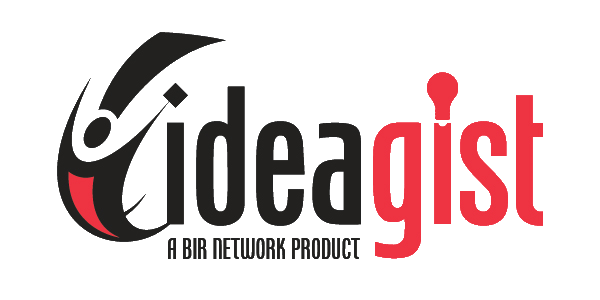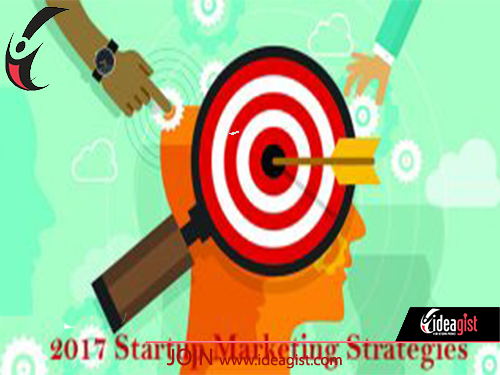Startup Marketing Strategies
A recent article in Forbes[1] about marketing trends that startups need to know about in 2017 is actually not about trends. In fact, it’s about anything but trends, which are never guaranteed. Instead, to mitigate susceptibility to market volatility, startups need to plan their marketing strategies around transience.
That’s right—The best way to plan for something we don’t know is to plan for something we know.
In a nutshell, consumers’ intellectual structure is hardwired and has been for millions of years. Our psychological trial-and-error processes remain constant, so it’s safe to assume that the way our brains interpret stimulus is comparatively constant, and brand marketing is no exception.
That means planning your startup’s marketing around that which is already established gives startups a decisive advantage.
To keep your startup on track to gain market visibility, three psychological principles apply when you’re planning your marketing strategies for 2017:
Instant gratification
Instant gratification is our basic human desire to get what we want when we want it. Humans don’t like waiting. Waiting doesn’t rest well with our hardwired pleasure principle, our biological need to satisfy our wants and desires now. Humans intrinsically seek pleasure through need satisfaction, whether they’re physiological, social or material. When our needs aren’t instantly met, we’re tense. The faster your startup can satisfy consumers’ needs, the more satisfied your customers will be. Makes sense, right?
By applying this concept to marketing, your startup will benefit from delivering value to your customers right away, and not just the product or service kind, but information value as well. When customers receive instant feedback from your brand, it improves their trust in the buying process as well. This includes providing transparent product information, downloadable resources and instant communication channels for optimum gratification.
A related strategy, on-demand startups—for example, Uber, Airbnb, Mohop or Overture—are those startups trying to disrupt verticals by delivering products and services the moment consumers want them. On-demand startups continue to enter the market steadily, which supports the theory that the desire for instant gratification is indeed prevalent.
Your customers want to customize. Make that happen for them.
Personalization appeals to our love of self-expression and heightens our emotional bond to brands. Customizing also satisfies the craving for products that reflect one's individual sense of identity that customers want. Customization increases the value consumers receive from a product.
Unlike Henry Ford, you want to give your customers options, let them decide. Whether your startup is in retail, software or social networking, from a psychological standpoint the strategy remains the same. Startups will benefit from offering products with choices—add-ons, optional features and a variety of design choices. Startups that allow customers to design their own products, like Australian companies Shoes of Prey and Disrupt Surfing are beginning to boom in popularity. Again, the self-expression thing is big, and it increases your product’s value to your customers. Don't be like Henry Ford.
Efficiency: maximum gain, minimal effort
Humans want the products they buy to offer maximum gain and involve a bare minimum of effort. We don’t like to work too hard to achieve full functionality. Efficiency impacts our product-buying decisions big time, both consciously and subconsciously. Brands that promote efficiency will be well-positioned for success in 2017.
Communicating your startup’s efficiency is just as critical to a successful marketing strategy as providing it. Demonstrate to customers that your product will make their lives easier and they’ll snatch it up. Be explicit in your messaging and position improved efficiency as a core competitive advantage. Customers value the ability to save time and operational effort.
Artificial Intelligence (AI) and machine learning are leading tech trends in 2017. Companies are adopting automation at break-neck speed to improve operational efficiencies. Salesforce predicts that startups are poised to benefit tremendously from the tidal wave of large companies investing in AI. A good example is Sydney-based startup Flamingo, which is preparing to list on the ASX.
Successful marketing strategies for 2017 are a perfect combination of good old-fashioned human intuition and cutting-edge strategies and technologies. Your startup must stay relevant, although there’s no surefire formula for it.
Startups have an increasingly challenging task at hand, as strategies that used to work are constantly being replaced with new, more complex and innovative marketing methods.
This is quintessential market transience, and it’s your reality in 2017. No use trying to outmaneuver market unpredictability. Instead, focus your startup marketing strategy on areas that will remain consistent.
###
[1] Marketing Trends Your Startup Needs to Know About in 2017
startup marketing strategies

